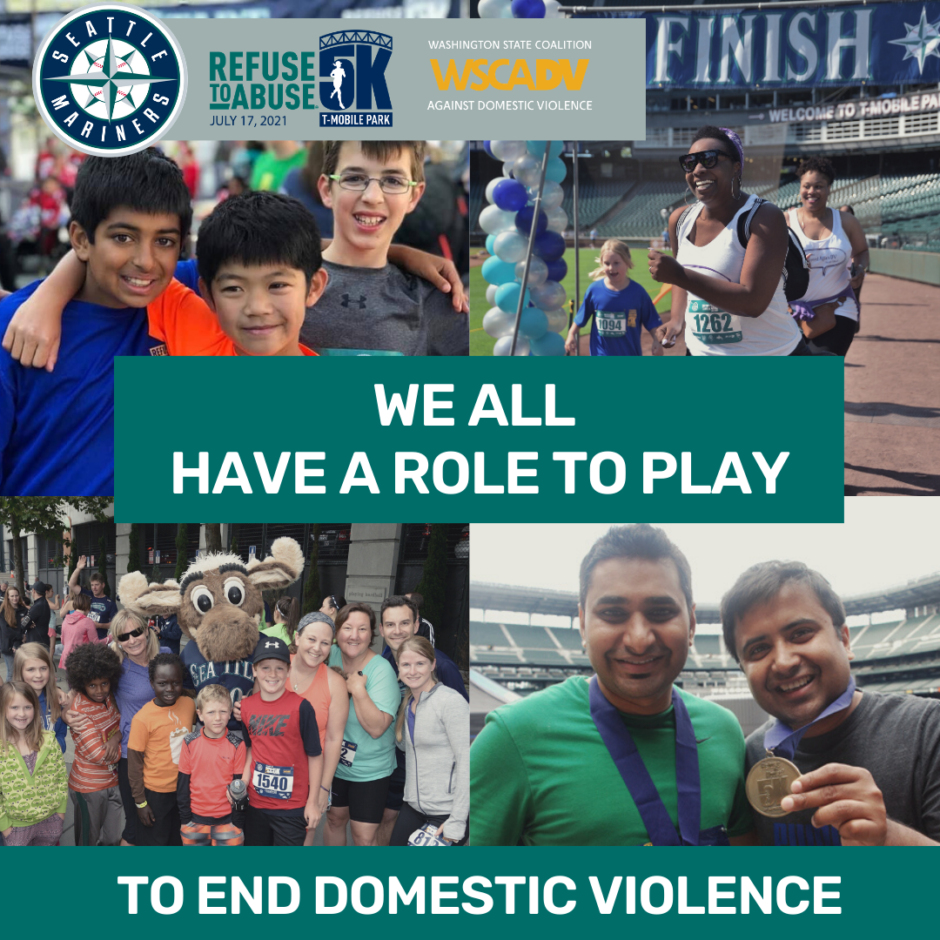The Seattle Mariners and Washington State Coalition Against Domestic Violence will host their tenth annual Refuse To Abuse® 5K this weekend as they celebrate an incredible 25 years of partnership with the Washington State Coalition Against Domestic Violence (WSCADV). The 5K run/walk builds on the success of the Refuse To Abuse® violence prevention campaign, launched in the 1990’s to take a public stand against domestic violence and promote healthy, respectful relationships. This year’s event takes place on July 17 and runners and walkers will have the option of participating in-person at T-Mobile Park or virtually in their own neighborhood. Social media engagement will connect the in-person and virtual crowds and feature video appearances by Kyle Seager, Dan Wilson, and the Mariner Moose.
Domestic violence and sexual assault thrive in silence and were on the rise over this past year of social distancing. During the isolation of stay-at-home orders, friends and family played a critical role as “first responders” to many people experiencing abuse. As the state has opened back up, the need for support continues.
“Domestic violence is 100% preventable. We’ve learned a lot during the pandemic about the power of connection and how friends and family can be a lifeline to someone in an abusive relationship,” said Judy Chen, Executive Director of WSCADV. “This event celebrates the resilience of survivors, the power of community, and communicates to everyone experiencing abuse that you are not alone. We’re incredibly grateful to the Seattle Mariners, their fans, and our supporters for coming together each year to be a part of the solution.” Every person participating in the Refuse To Abuse® 5K will receive tips and tools from WSCADV’s Friends & Family Guide on how to help a loved one who is experiencing abuse.
Many of this year’s participants are also fundraising for the cause. Every dollar raised supports WSCADV’s statewide prevention work, including the development of concrete tools to help start conversations with young people about healthy relationships, policy advocacy on behalf of survivors of abuse, and programming to prevent future violence.
Download official press release.
